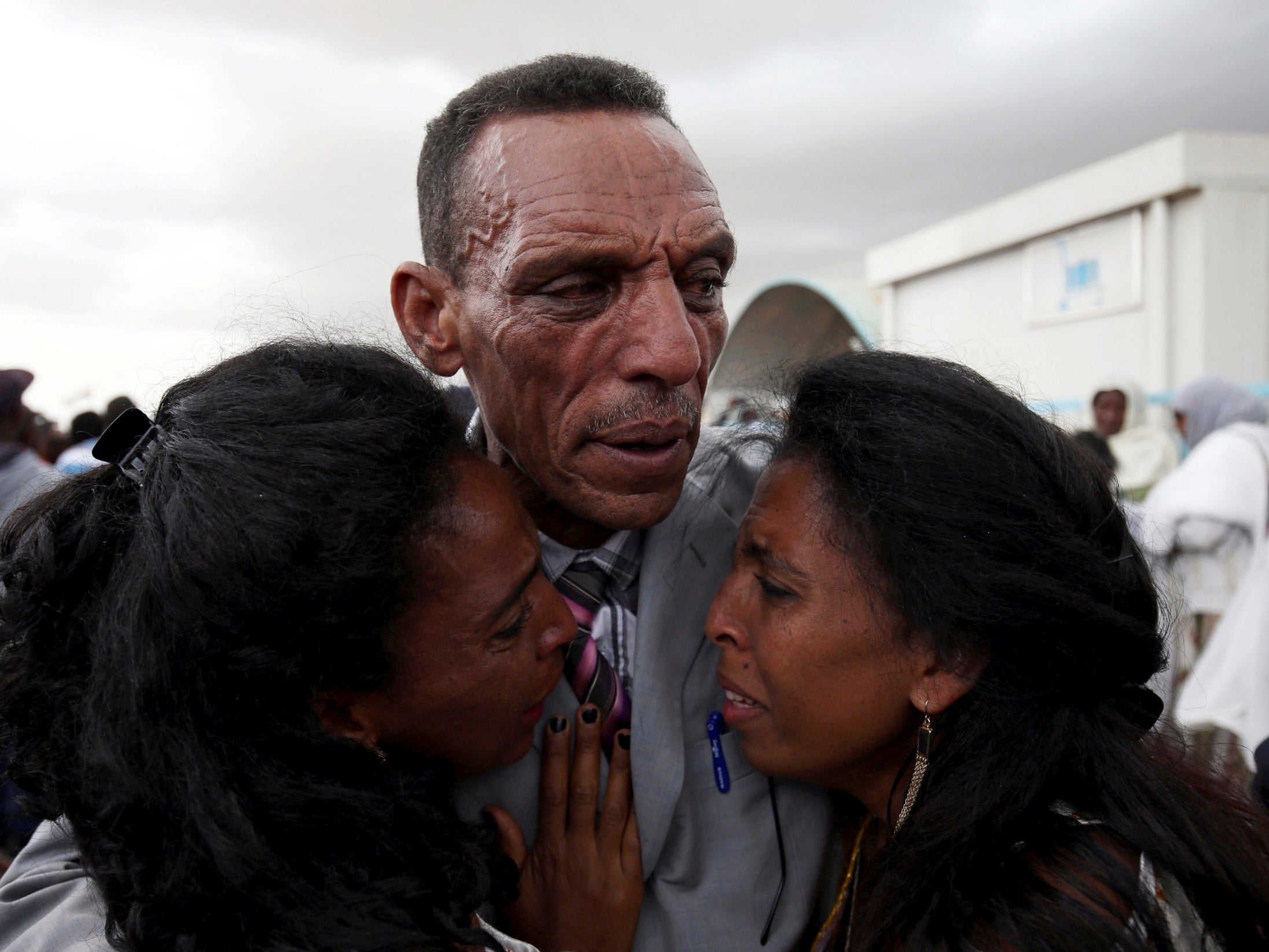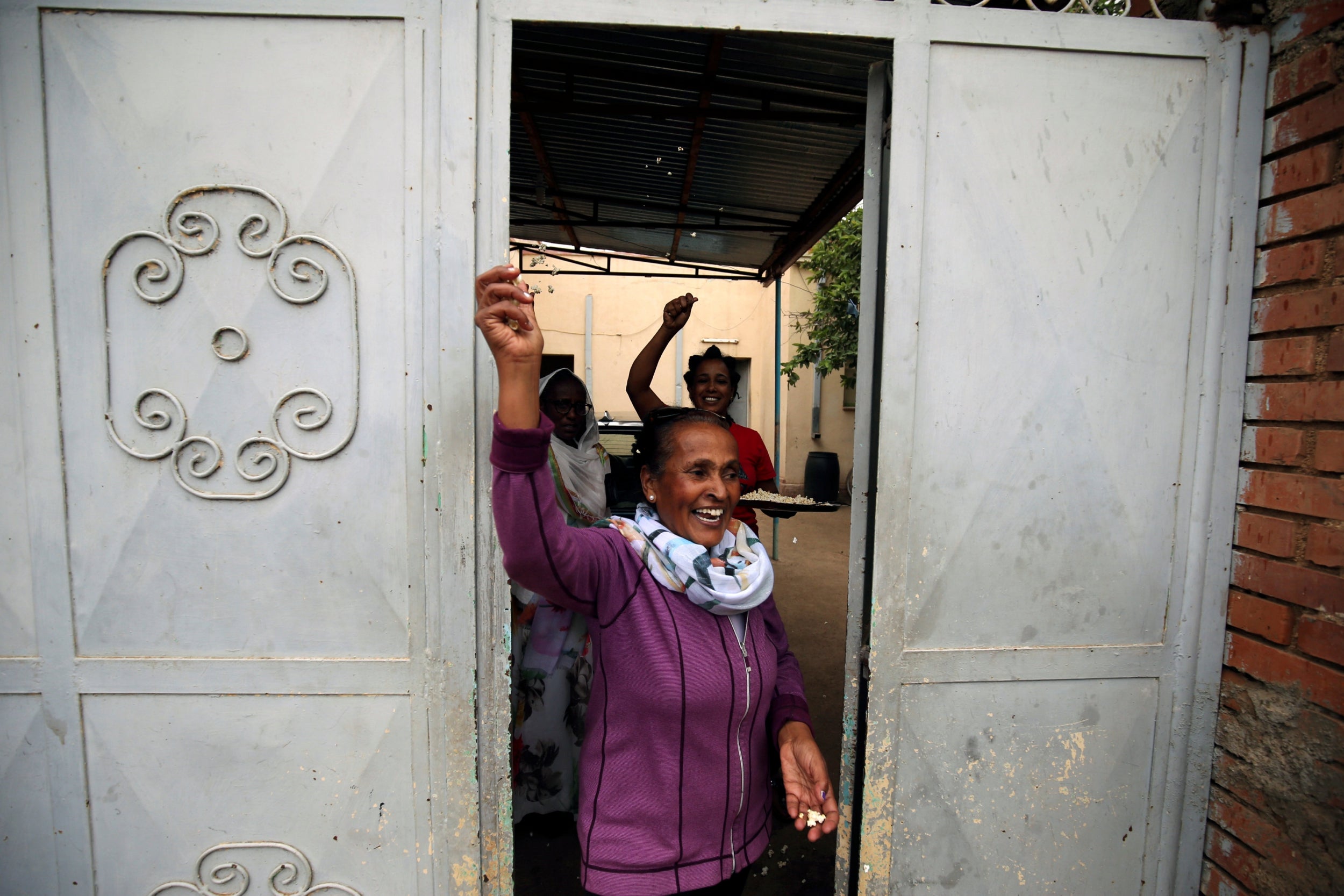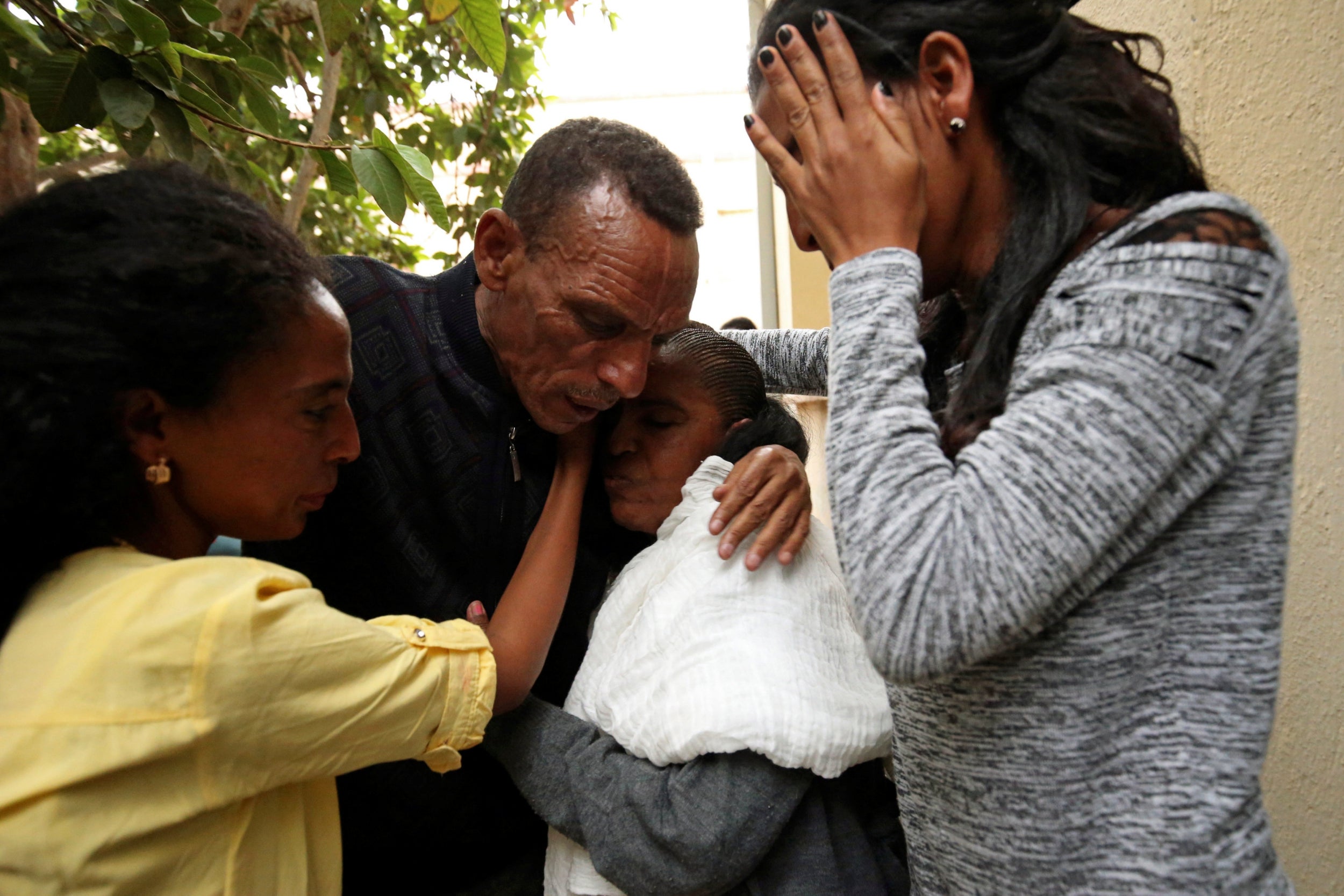In photos: Ethiopian man’s reunion with family after being separated by war for 18 years
‘It was years of darkness. The separation and longing was unthinkable. Imagine someone who just won a lottery. That is how I feel now’

Your support helps us to tell the story
From reproductive rights to climate change to Big Tech, The Independent is on the ground when the story is developing. Whether it's investigating the financials of Elon Musk's pro-Trump PAC or producing our latest documentary, 'The A Word', which shines a light on the American women fighting for reproductive rights, we know how important it is to parse out the facts from the messaging.
At such a critical moment in US history, we need reporters on the ground. Your donation allows us to keep sending journalists to speak to both sides of the story.
The Independent is trusted by Americans across the entire political spectrum. And unlike many other quality news outlets, we choose not to lock Americans out of our reporting and analysis with paywalls. We believe quality journalism should be available to everyone, paid for by those who can afford it.
Your support makes all the difference.Addisalem welcomed by his family with ululations and cheersWhen Ethiopia and Eritrea went to war in 1998 and deported each other’s nationals en masse, Addisalem Hadgu thought he had nothing to worry about, safe in the belief his Ethiopian passport would shield his Eritrean wife from expulsion.
Two years later, as the conflict raged on in trenches along the common border, his wife, Nitslal Abraha, mysteriously disappeared along with their two daughters. Addisalem, an Ethiopian state TV journalist, embarked on a frantic search.
A neighbour approached him several days later and handed him a letter from Nitslal in which she said she had left for Eritrea with Azmera and Danayt, who were teenagers at the time.
The letter did not explain her reasons but Addisalem suspected that she, like millions of others on both sides of the conflict, had been swept by the patriotism and nationalism that engulfed both countries as bloodshed escalated.
“One day, we may meet,” the letter read.
For 18 years, they didn’t. There was no way to communicate – all transport links, phone and postal services had been severed since the start of conflict.

But this month, a reunion became possible when the two governments – bitter foes for nearly two decades despite agreeing a ceasefire back in 2000 – signed a peace deal that ended a generation of hostility in a matter of days.
After Eritrean president Isaias Afwerki and Ethiopian prime minister Abiy Ahmed shook hands, hugged and pledged to restore ties, Addisalem was among more than 400 passengers who flew to Asmara on 18 July on the first direct flight between the Horn of Africa neighbours since 1998.
Only months earlier, he had given up hope of a reunion. Over the years he had tried to reach out, including a request to the International Committee of the Red Cross to find his wife’s contacts, but to no avail.
He even considered travelling to Eritrea through Sudan with the help of people smugglers but was advised against the trip because of the exorbitant costs and risks to his safety.
“Everything discouraged you. I used to ask myself whether I was going to be deprived of seeing my family because I did not have enough money,” said the 58-year-old Addisalem.
While his friends tracked down his eldest daughter, Azmera, through Facebook and they exchanged messages over the past two years, Addisalem often found himself distraught over his inability to speak to her in person.
“I collapsed and blanked one day,” he told Reuters a day after his arrival in Asmara. “I could not control myself. I stopped speaking to her as I just could not take it any more.”
As the pledge to restore Ethiopian-Eritrean ties gathered pace and the possibility of a rapprochement seemed likely over the months of June and July, he contacted her again.
They agreed to meet at the home of a relative.
On Thursday, outside a small brick house in Asmara’s Geza Banda ‘Tilyan district, Addisalem was received to ululations and cheers. Husband, wife and daughters embraced for the first time in 18 years. Initially, it was only small talk.
“I came despite a toothache,” he told her.
“I am a bit ill as well,” Nitslal responded.
He then broke down in tears as his daughters hugged him.

“It was years of darkness. The separation and longing was unthinkable. Imagine someone who just won a lottery. That is how I feel now,” Addisalem said, lamenting the long and bitter price paid by ordinary people on both sides of the conflict.
“This was unnecessary. I lost my family because of it. We all fought in it one way or another.”
His other daughter, Danayt, could scarcely believe she was seeing her father again. “He might be sitting next to me now but I am still horrified that I might lose him again,” she said.
Overcome by emotion, Addisalem sidestepped any questions about the past, including why his wife had left with their two daughters, although their son remained with him.
With the rapprochement between Ethiopia and Eritrea still in its infancy, it was unclear where the family would end up living.
Determined not to spoil the moment, Addisalem just looked to the future. “I do not care now,” he said. “I have turned my back on the past and will enjoy the future with my daughters.”
Reuters
Subscribe to Independent Premium to bookmark this article
Want to bookmark your favourite articles and stories to read or reference later? Start your Independent Premium subscription today.
Join our commenting forum
Join thought-provoking conversations, follow other Independent readers and see their replies
Comments